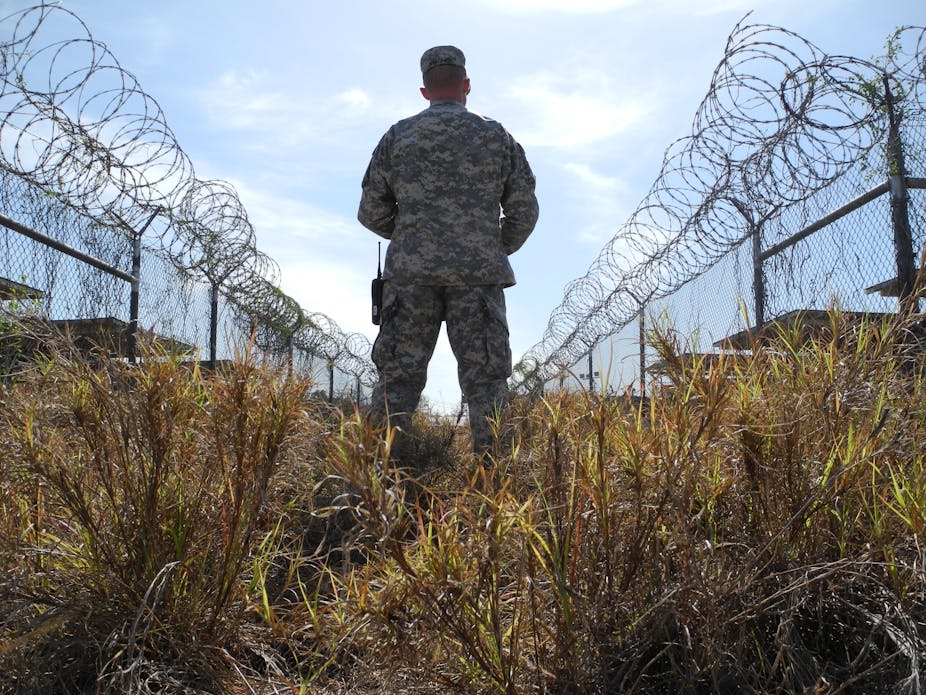On November 12 and 13, the US will appear before the United Nations Anti-Torture Committee in Geneva as part of its periodic look at how various countries comply with the rules on torture and other cruel, inhuman or degrading treatment. This should be seen as an opportunity for the US to make a clean break from the past and set an example to the whole world.
These review meetings happen in cycles and this is the first time the committee has examined the US since Barack Obama took office in 2009. The Committee investigates whether countries are abiding by the UN’s ban on the use of torture and its rules on the cruel treatment of their own or other citizens. In this session, it has already held meetings with Ukraine, Sweden and Australia – ruling that the latter’s treatment of asylum seekers is inhuman and unlawful.
When their time comes, American officials will be asked whether the US has stopped the practice of “rendition”, whether it applies torture-prohibition rules to those detained outside US territory and the status of investigations into allegations of the use of torture.
These questions provide a perfect opportunity for the Obama administration to distance itself from the practices that went on under George W Bush and to reaffirm its commitment to the absolute prohibition on torture. Whether or not it does so will offer a strong indication of its current thinking on this issue.
And when it comes to torture, the US sets an example to the rest of the world, whether it likes it or not. A group of 12 Nobel Peace Prize laureates recently wrote an open letter to Obama warning him as much. They were calling on him to release a Senate report on the CIA’s treatment of terrorism suspects and argued that if a country like the US openly practices torture it lowers the standards for every country.
Blurring the lines
One of the most insidious aspects of the US approach has been to try to blur the lines of what constitutes torture. Torture is never allowed. There is no exception in international law for torture. Its prohibition is absolute. Even in war – even in a time of national crisis – it is never permitted. Yet the Bush administration has been accused again and again of practices that breached the prohibition on torture.
In international law, torture is the intentional infliction of severe physical or mental pain or suffering, by a public official – either directly or indirectly – and for a specific purpose. The purpose can be for obtaining information, obtaining a confession, for punishment, or for the purpose of intimidation or coercion.
Despite the international prohibition, though, some countries still argue that any measures should be allowed if security is at risk. And this was the kind of thinking that undoubtedly contributed to the use of torture by the US.
One of the most infamous rationales for using torture is the ticking bomb scenario. A terrorist knows how to turn off a bomb placed in the middle of a city and the only way to get the information is by torturing it out of them. It is a common plot on TV shows and has been used to create doubt about having an absolute ban on torture.
But this is a false debate. Even the US Army’s own field manual on intelligence interrogation recognises that force “is a poor technique, as it yields unreliable results, may damage subsequent collection efforts, and can induce the source to say whatever he thinks the interrogator wants to hear”.
The reality is that in many countries it is human rights defenders, journalists, or political opponents who are tortured. Amnesty International is so concerned about the widespread use of torture around the world that it launched a new campaign this year. It reported that in the past five years it has found evidence of torture and other forms of ill-treatment in at least 141 countries.
Clean slate
If the US was to come clean about previous practices it would send a strong message about the absolute prohibition on torture and set a new path for itself and others. Many other countries have been implicated as complicit in US extraditions, including the UK, Germany, Australia and Canada, so a message from the UN to the US is a message to them all.
Recent controversy in the UK around a parliamentary inquiry into allegations about the ill-treatment of detainees illustrates that there is still a long way to go in bringing to light the reality of what has occurred during the war on terror. The US could establish a precedent for openly dealing with the past use of torture by admitting its mistakes and making amends.
As its officials head to Geneva, the US urgently needs to reclaim the moral high ground on this issue. The practice of torture is alarmingly widespread in the world. Nations who would position themselves as respecting human rights and international law must have strict and absolute rules on the use of torture. When the lines on the use of torture get blurred, the standards for everyone reduce and the risks increase for all of us. It is too late to undo what has been done but it is not too late to acknowledge it and learn from it.

